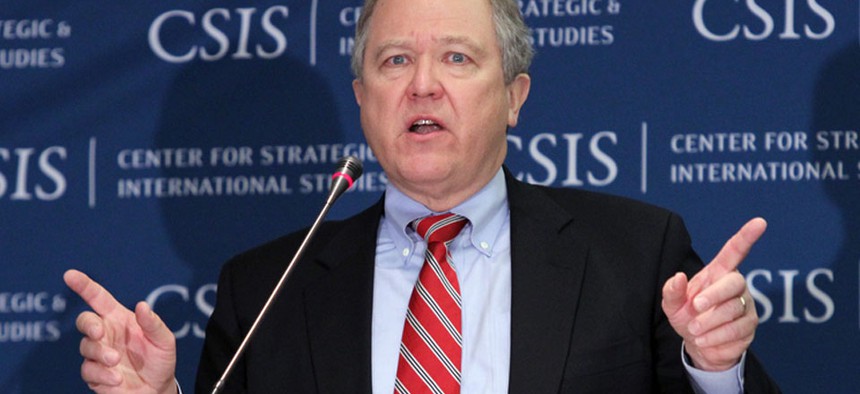
ohn Sopko, Special Inspector General for Afghanistan Reconstruction Flickr user CSIS
Watchdog: State Dept. Needs a Better Plan for Beating Corruption in Afghanistan
Support for reconstruction may falter after U.S. drawdown, SIGAR notes.
As U.S. forces exit Afghanistan after 12 years of warfare, the State Department lacks a systematic anti-corruption strategy vital to proper use of the $100 billion being spent on reconstruction, a watchdog has found.
The failure to finalize such a strategy over the past three years raises “the risk that reconstruction funds will be misused or wasted, reduces popular support for the Afghan government, hampers economic growth and governmental performance, and reduces international support for the entire reconstruction effort,” wrote John Sopko, special inspector general for Afghanistan Reconstruction, in a report Wednesday to Secretary of State John Kerry and U.S. Ambassador to Afghanistan James Cunningham.
Sopko has released a series of reports critical of U.S. reconstruction efforts in that war-torn country. Those efforts involve the U.S. Agency for International Development, and the Treasury, Justice and Homeland Security departments in addition to State.
Wednesday’s report noted that a draft strategy from 2010 was never finalized or approved by the secretary of State, and that the documents used for the earlier report are now out of date. Hence State “remains unable to assess the overall progress the U.S. government has made to improve the Afghan government’s capacity to combat corruption,” SIGAR said.
“With the ongoing drawdown of U.S. military forces and the transition at the embassy from a civilian uplift posture to a more traditional level of personnel and other resources, a strategic allocation of U.S. anti-corruption priorities, efforts and resources will be even more important in providing accountability and oversight for U.S. funds,” the report said.
As remedies, SIGAR recommended that State define a more clear and comprehensive anti-corruption strategy and update its operational plan to implement the strategy.
Department officials largely agreed with the recommendations. State’s deputy special representative for Afghanistan and Pakistan said that “three anti-corruption working groups provide the targeted and flexible approach necessary to work effectively in Afghanistan’s rapidly changing environment in a way that is more responsive than a single, static strategy.”







